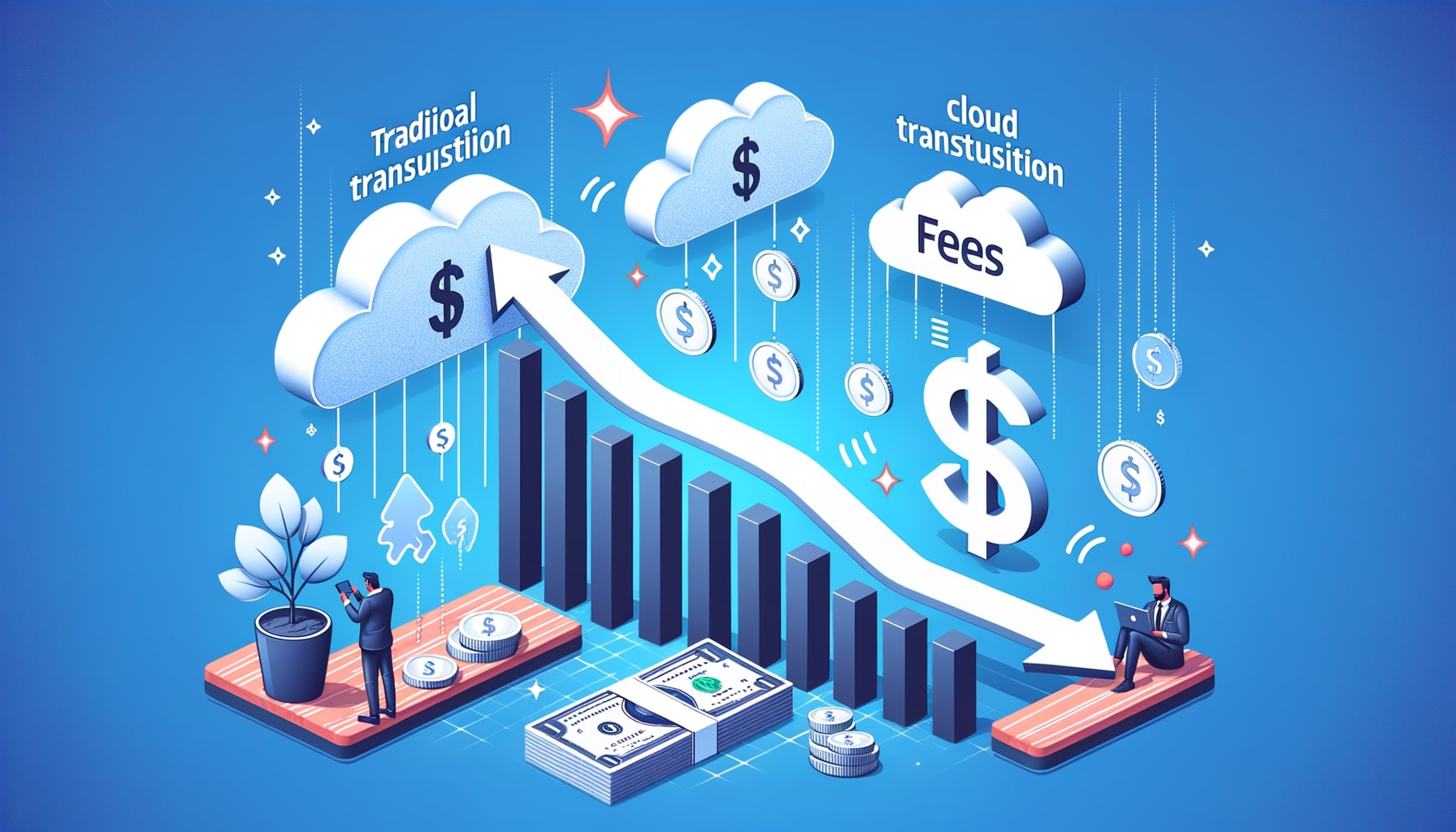The Future of API Technology in Cloud Payments
In recent years, the world of payments has undergone a significant transformation with the advent of cloud technology. Cloud payments have revolutionized the way businesses and consumers conduct transactions, offering convenience, scalability, and enhanced security. At the heart of this transformation lies API (Application Programming Interface) technology, which acts as the bridge between different software systems, enabling seamless communication and data exchange.
Understanding API Technology in Cloud Payments
API technology serves as the backbone of cloud payments, facilitating the integration of various payment platforms, applications, and services. It allows businesses to connect their payment systems with third-party providers, enabling them to offer a wide range of payment options to their customers. APIs act as the intermediaries, enabling the secure transfer of data between different systems, ensuring that transactions are processed smoothly and efficiently.
APIs in cloud payments can be categorized into two types: payment gateway APIs and payment processor APIs. Payment gateway APIs are responsible for authorizing and processing transactions, while payment processor APIs handle the actual movement of funds. These APIs enable businesses to accept payments from various sources, such as credit cards, digital wallets, and bank transfers, providing customers with flexibility and convenience.
Benefits of API Technology in Cloud Payments
The adoption of API technology in cloud payments brings numerous benefits to businesses and consumers alike. Firstly, APIs enable businesses to offer a seamless and personalized payment experience to their customers. By integrating with various payment providers, businesses can offer multiple payment options, catering to the preferences of their diverse customer base. This flexibility enhances customer satisfaction and increases conversion rates.
Furthermore, API technology enables businesses to streamline their payment processes and reduce operational costs. By automating payment workflows and eliminating manual data entry, businesses can save time and resources. APIs also provide real-time transaction data, allowing businesses to gain valuable insights into customer behavior and make data-driven decisions to optimize their payment strategies.
Challenges and Limitations of API Technology in Cloud Payments
While API technology offers numerous benefits, it also presents certain challenges and limitations. One of the main challenges is ensuring the security of sensitive payment data. As APIs facilitate the exchange of data between different systems, there is a risk of unauthorized access or data breaches. Businesses must implement robust security measures, such as encryption and authentication protocols, to protect customer data and maintain trust.
Another challenge is the complexity of integrating multiple APIs from different payment providers. Each provider may have its own API specifications and documentation, making the integration process time-consuming and resource-intensive. Businesses must invest in skilled developers and API management tools to ensure smooth integration and ongoing maintenance.
The Role of Security in API Technology for Cloud Payments
Security is a critical aspect of API technology in cloud payments. As payment data is transmitted between systems, it is essential to implement robust security measures to protect against unauthorized access and data breaches. Encryption plays a crucial role in securing data during transmission, ensuring that it cannot be intercepted or tampered with.
In addition to encryption, authentication protocols are used to verify the identity of users and systems accessing the API. This helps prevent unauthorized access and ensures that only authorized parties can initiate and process transactions. Two-factor authentication, such as using a combination of passwords and biometric data, adds an extra layer of security.
Furthermore, businesses must comply with industry regulations and standards, such as the Payment Card Industry Data Security Standard (PCI DSS), to ensure the secure handling of payment data. Regular security audits and vulnerability assessments should be conducted to identify and address any potential security risks.
Emerging Trends in API Technology for Cloud Payments
The field of API technology in cloud payments is constantly evolving, with new trends and innovations shaping the future of the industry. One emerging trend is the use of Open Banking APIs, which allow customers to securely share their financial data with third-party providers. This enables businesses to offer personalized financial services and products based on the customer’s financial profile and transaction history.
Another trend is the adoption of real-time payment APIs, which enable instant payment processing and settlement. Real-time payments offer significant advantages, such as faster fund availability, improved cash flow management, and enhanced customer experience. This trend is driven by the increasing demand for instant gratification and the need for businesses to stay competitive in a fast-paced digital economy.
Integration of AI and Machine Learning in API Technology for Cloud Payments
Artificial Intelligence (AI) and Machine Learning (ML) are revolutionizing the field of API technology in cloud payments. AI-powered APIs can analyze vast amounts of transaction data in real-time, detecting patterns and anomalies to identify potential fraud or suspicious activities. ML algorithms can continuously learn and adapt to new fraud patterns, enhancing the accuracy and effectiveness of fraud detection and prevention.
AI and ML can also be used to personalize the payment experience for customers. By analyzing customer data and behavior, businesses can offer targeted recommendations and incentives, increasing customer engagement and loyalty. AI-powered chatbots and virtual assistants can provide instant support and assistance to customers, improving the overall customer experience.
The Future of API Technology in Cloud Payments: Opportunities and Innovations
The future of API technology in cloud payments is filled with opportunities and innovations. One of the key areas of growth is the Internet of Things (IoT), where connected devices can initiate and process payments seamlessly. For example, smart appliances can automatically reorder supplies and make payments when they are running low, eliminating the need for manual intervention.
Another area of innovation is the integration of blockchain technology with API technology in cloud payments. Blockchain offers enhanced security, transparency, and immutability, making it an ideal solution for secure and efficient payment processing. By integrating blockchain APIs, businesses can ensure the integrity of transactions and reduce the risk of fraud.
Furthermore, the rise of decentralized finance (DeFi) presents new opportunities for API technology in cloud payments. DeFi platforms leverage blockchain and smart contract technology to offer a wide range of financial services, such as lending, borrowing, and trading, without the need for intermediaries. APIs can enable seamless integration between traditional payment systems and DeFi platforms, expanding the possibilities for financial innovation.
Frequently Asked Questions (FAQs) about API Technology in Cloud Payments
Q.1: What is API technology in cloud payments?
API technology in cloud payments refers to the use of Application Programming Interfaces to facilitate the integration of payment systems, applications, and services in the cloud. APIs enable businesses to connect with various payment providers and offer multiple payment options to their customers.
Q.2: How does API technology benefit businesses in cloud payments?
API technology offers several benefits to businesses in cloud payments. It enables businesses to offer a seamless and personalized payment experience to their customers, streamlines payment processes, reduces operational costs, and provides valuable insights into customer behavior.
Q.3: What are the challenges of API technology in cloud payments?
Some of the challenges of API technology in cloud payments include ensuring the security of sensitive payment data, integrating multiple APIs from different providers, and complying with industry regulations and standards.
Q.4: How does security play a role in API technology for cloud payments?
Security is crucial in API technology for cloud payments to protect against unauthorized access and data breaches. Encryption, authentication protocols, and compliance with industry regulations are essential to ensure the secure handling of payment data.
Q.5: What are the emerging trends in API technology for cloud payments?
Some emerging trends in API technology for cloud payments include the use of Open Banking APIs, real-time payment APIs, and the integration of AI and Machine Learning for fraud detection and prevention.
Conclusion
API technology has played a pivotal role in the evolution of cloud payments, enabling businesses to offer seamless and personalized payment experiences to their customers. The benefits of API technology, such as flexibility, scalability, and cost savings, have made it an essential component of modern payment systems. However, challenges such as security and integration complexity must be addressed to ensure the continued success of API technology in cloud payments.
Looking ahead, the future of API technology in cloud payments is filled with opportunities and innovations. The integration of AI, Machine Learning, IoT, and blockchain presents new possibilities for enhanced security, personalized experiences, and financial innovation. As businesses and consumers continue to embrace digital payments, API technology will continue to evolve and shape the future of the payments industry.










